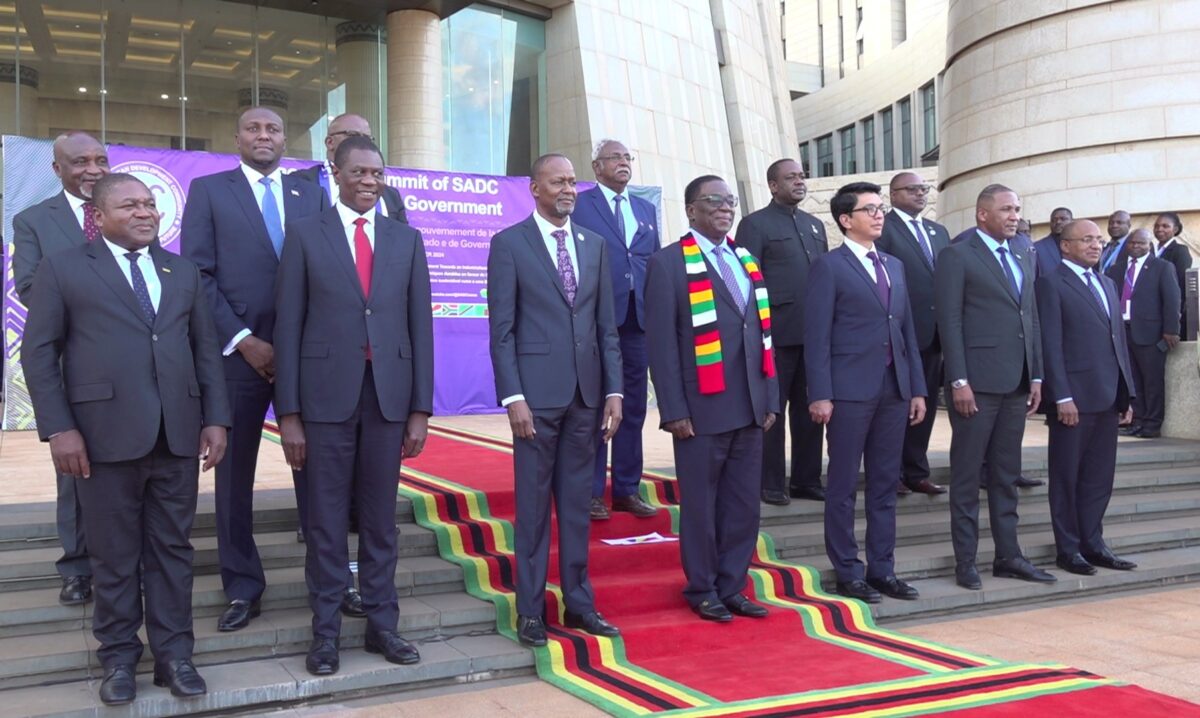HARARE – The Supreme Court has upheld the validity of a controversial government decree from February 2019 which converted debts accumulated in United States dollars to the local RTGS currency at a discredited rate of 1:1 – and at great loss to creditors.
Lawyers on Tuesday warned that the judgement by Chief Justice Luke Malaba, sitting with Justices Susan Mavangira and Nicholas Mathonsi as an appeal court, had made Zimbabwe a “hard sell” to creditors.
The Supreme Court found in favour of Zambezi Gas Zimbabwe Pvt Ltd which was appealing against two judgements of the High Court in June 2018 and May 2019 ordering the company to pay coal and chrome mining company, N.R. Barber Pvt Ltd, over US$3.8 million in debt.
Zambezi Gas argued in their appeal that Statutory Instrument 33 of 2019, a decree issued in February 2019 by Finance Minister Mthuli Ncube converting all US dollar balances into the RTGS currency, meant that they could settle their debt in RTGS.
Ncube’s statutory instrument provided that “for accounting and other purposes”, all assets and liabilities which were “valued and expressed” in US dollars immediately before its effective date would be “deemed to be values in RTGS dollars at a rate of one-to-one to the United States dollar”.
In reality, the RTGS was weaker than the US dollar and the RTGS$4,136,806.54, including legal fees, that was deposited by Zambezi Gas into N.R. Barber’s account in May 2019 was worth just US$144,788.23 at the prevailing interbank rate – a far cry from the original debt of US$3,885,000.
In a January 20 judgement, made available on Tuesday, Chief Justice Malaba, with Mavangira and Mathonsi concurring, ruled: “There can be no parity to talk about once it is accepted that the RTGS dollar is a currency denomination with a set legal value. It is the legal tender in Zimbabwe and as such carries a specific value.
“Once a conversion of the value of an asset or liability denominated in United States dollars is made to the value of RTGS dollars, the converted value remains the same, as the two different currency denominations both carry value.
“No exchange rate can be applied as the judgment debt remains a judgment debt with a value after it is converted to the local currency. The RTGS dollar has the value given under the one-to-one rate and it remains on that value even after the effective date.”
Lawyers said short of challenging the constitutionality of the statutory instrument, the judgement represented a dead end for individuals and companies who were affected by the decree.
“The judgement greatly benefits anyone who was in debt or had taken massive loans. If you had a US$1 million debt this time last year, you can pay it off today with US$58,241. Anyone who knew this was coming had a massive advantage,” said lawyer and opposition MDC treasurer, David Coltart.
Lawyer Sipho Malunga, who heads the Open Society Initiative for Southern Africa, said on Twitter: “This is exactly the reason why the Zimbabwe economy will never recover and the crisis will never end under this Zanu PF government
“Who has access to massive debt in Zimbabwe except the political elite? This benefits them and only them. What serious investor would invest in such a country?”
Legal commentator Alex Magaisa said it was “hard to make sense of the reasoning” of the judges.
He argued: “How can it be said that ‘the RTGS dollar has the value given under the one-to-one rate and it remains on that value even after the effective date’, when it was trading at 1:16 to the US dollar on the day that the judge was delivering his judgement?
“Is the ivory tower of justice so divorced from the economic realities so as to produce such esoteric comments from the country’s leading justice?”
Magaisa said there was scope for challenging the constitutionality of the statutory instrument, but suggested prospects of success were dim given Malaba’s stance.
“A reduction in an asset from US$3.8 million to US$144,000 is, by all accounts, a serious erosion and violation of one’s private property rights,” he said. “There is, one might imagine, a good case for challenging the constitutionality of SI 33/2019 and the subsequent Finance Act No. 2 which replaced and confirmed it in August 2019. Yet, in view of the reasoning given by the Chief Justice, such an application is unlikely to succeed. The comments suggesting that there is no loss of value point to a foreclosure of any arguments that there is erosion of private property rights.”
The lawyers warned that the implications of the judgement would linger on as companies seek ingenious ways of protecting the value of their property in any contractual arrangements.
“Those who have gained may find comfort in their windfall, but any comfort that comes from authoritarian decrees is false and misleading,” Magaisa warned.
The Zimbabwe government, with a domestic debt of around US$11 billion at the time the decree was issued, stands as the biggest beneficiary of what Magaisa described as a “great heist.”
“The government has reduced its domestic debt by theft. All those who are owed by the government must count their losses,” he said. “One thing for sure though is that this judgement brings to the fore the hazardous nature of the Zimbabwean economic terrain for those engaged in trade and commerce. Just a simple decree can have devastating consequences.”
Magaisa said Malaba’s judgement had left the possibility that companies which had signed agreements in any other currency other than the United States dollar could still demand payment in that currency.
“Because of SI 33/2019’s express mention of US dollars, the Chief Justice was prepared to concede that it would not have applied if the liability was expressed in another foreign currency other than the US dollar,” Magaisa said in a legal opinion.
“This suggests that liabilities expressed in South African rand or another currency would have been safer than liabilities expressed in US dollars. This is an example of the absurdities that can result from a rigid and pedantic insistence on a literal interpretation of statutes, which takes no account of context.
“If the Supreme Court is right, the discrimination between US dollar creditors and creditors owed in other foreign currencies is irrational and unfairly discriminatory, itself a potential ground for unconstitutionality of the provision.”
















